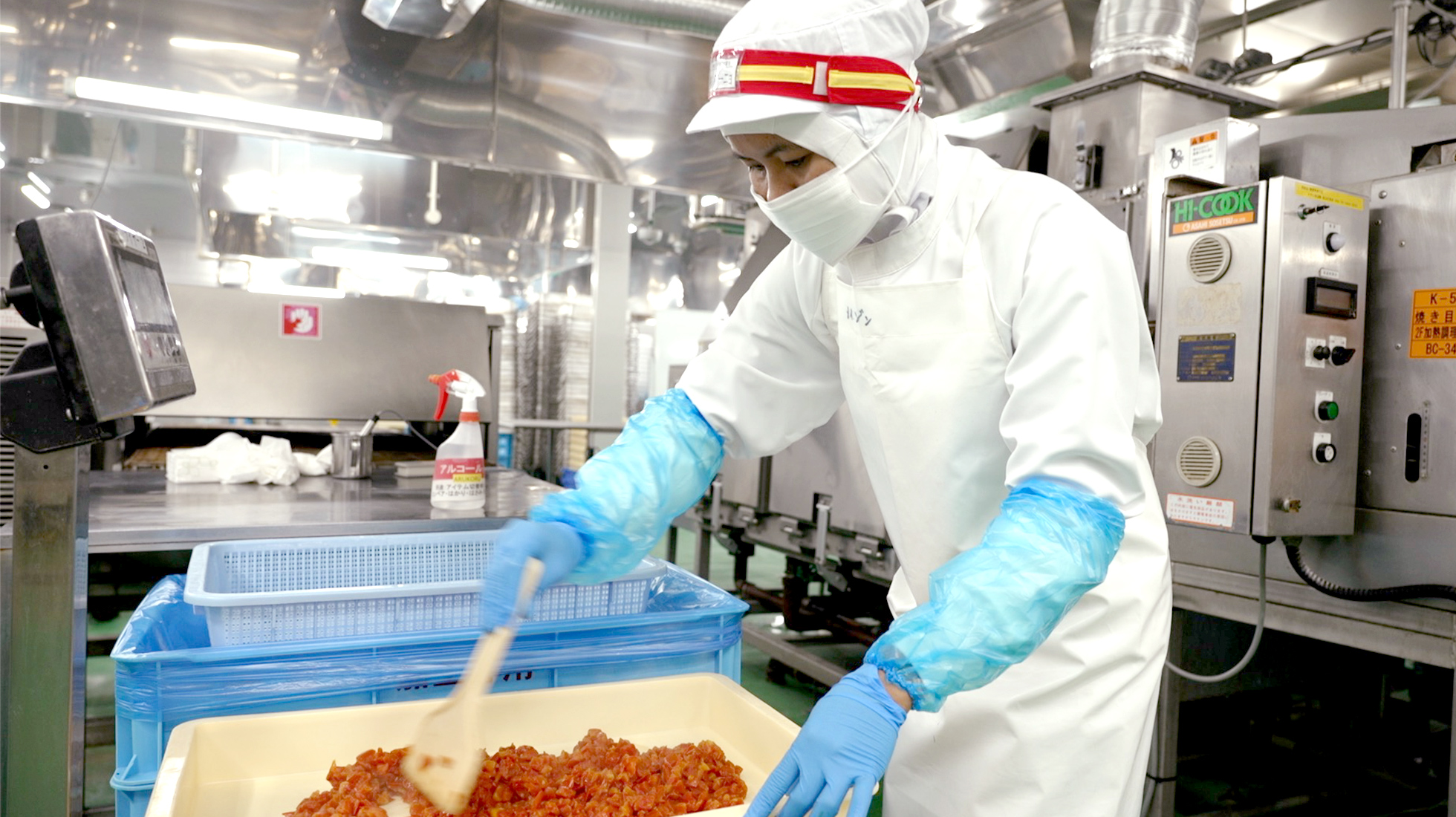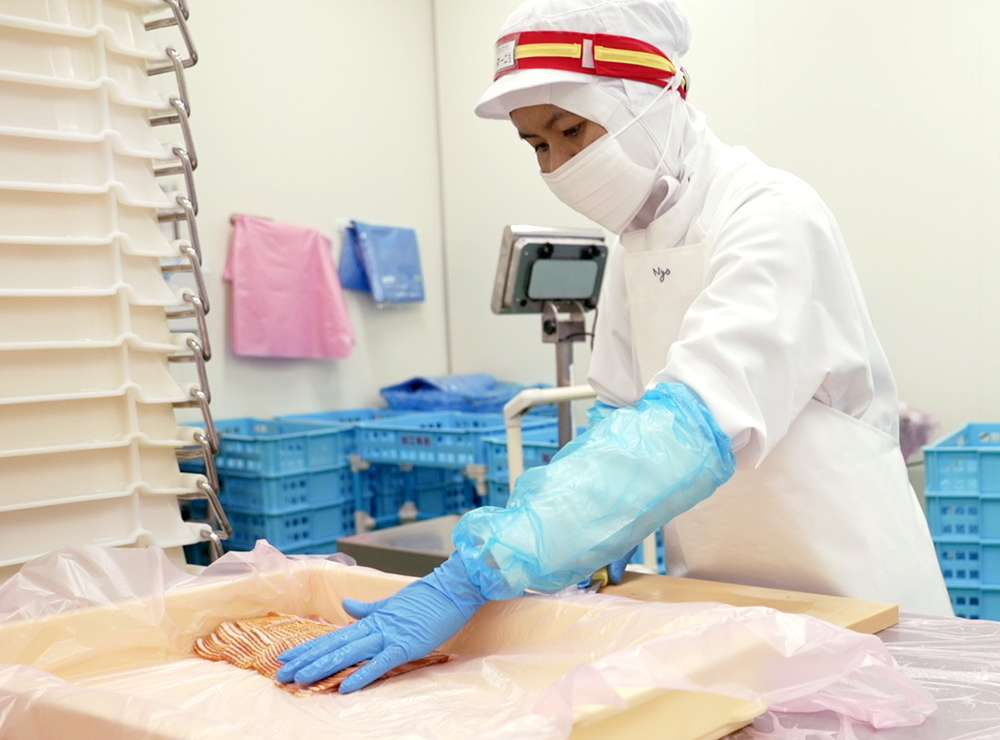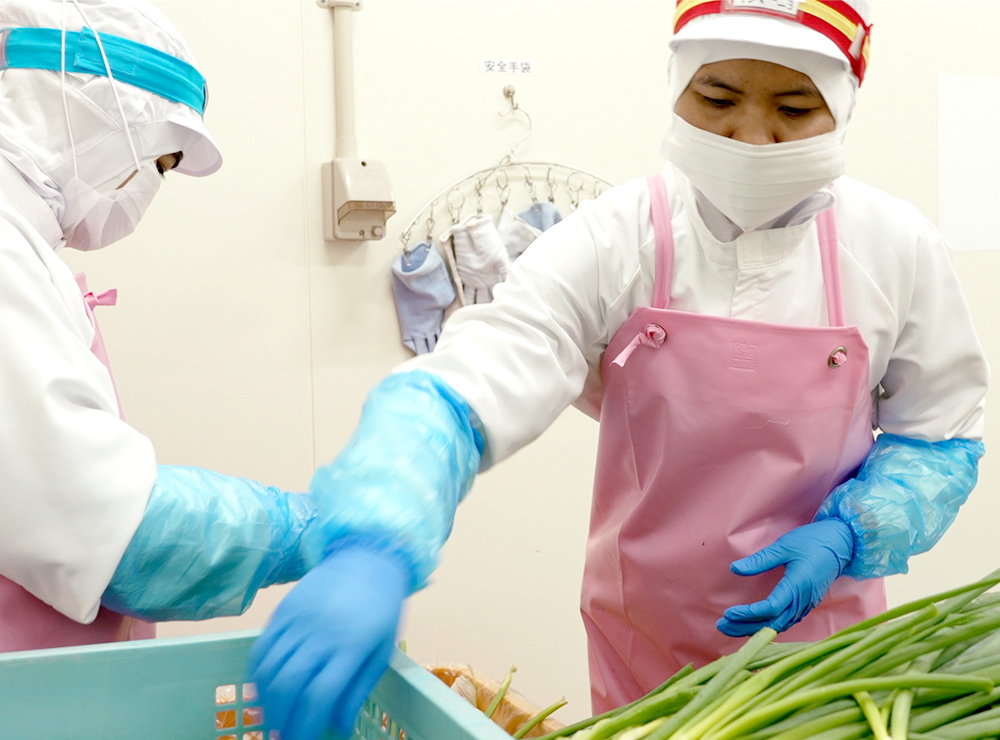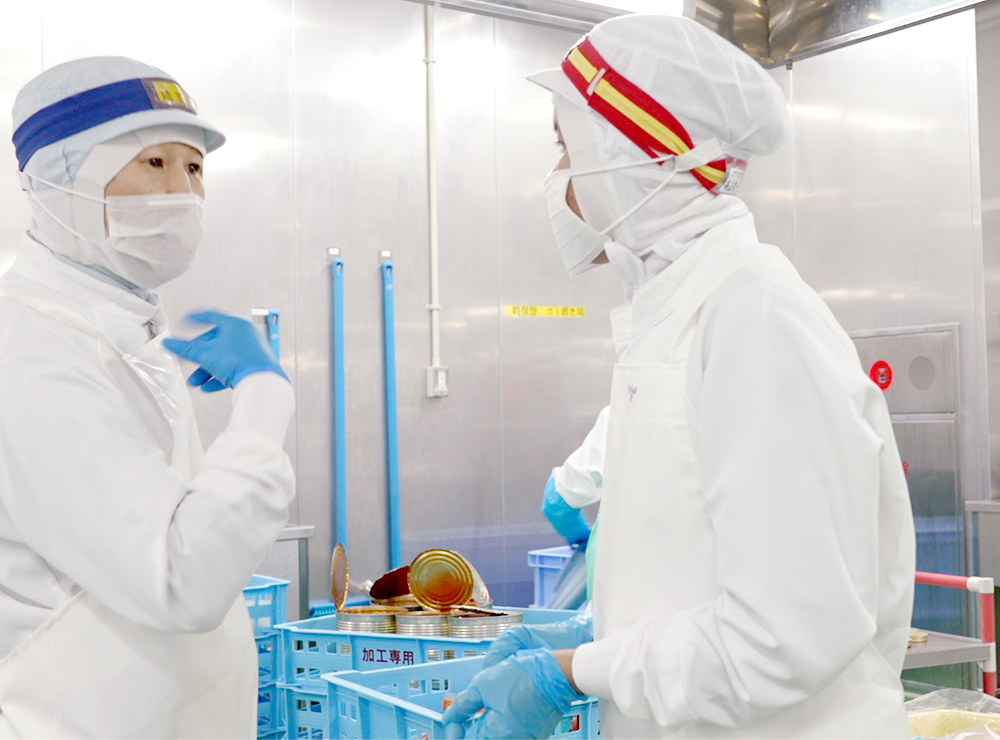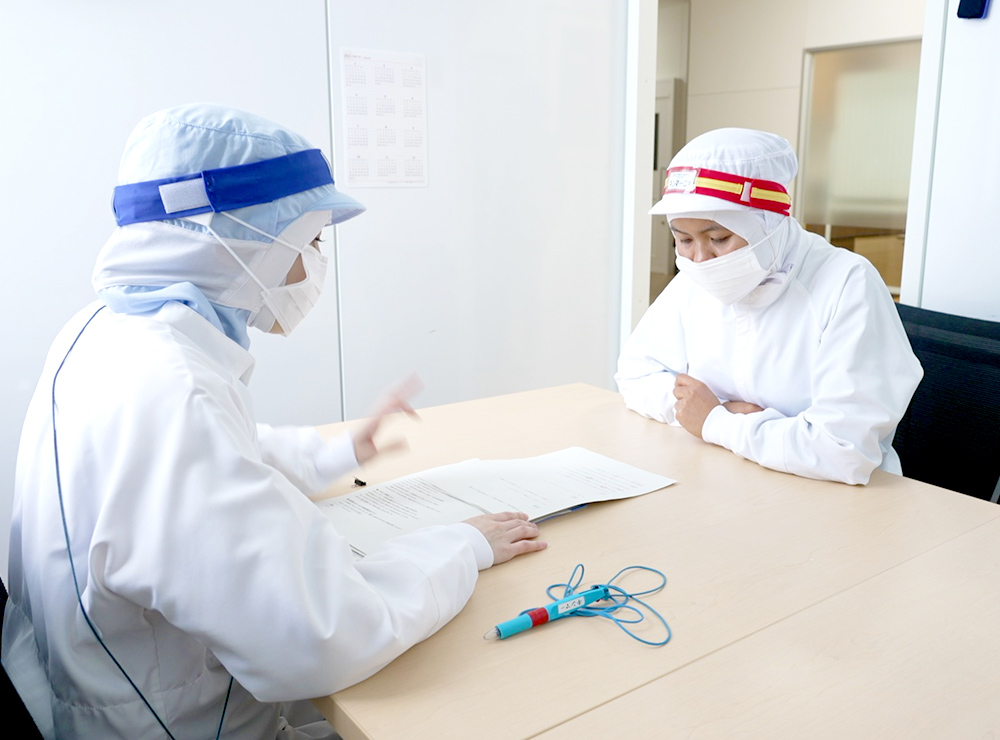We want to help our foreign workers be able to use Japanese in their careers and are providing them with Japanese language education aimed at levels N1 and N2 of the Japanese-Language Proficiency Test (JLTP). We have also established a salary increase system based on the proficiency level they have obtained. The study meeting, held once a month for all foreign workers, is held in small groups and according to their abilities. Our employees serve as lecturers, interview them about what they want to learn, and create original teaching materials for them. The foreign workers learn difficult kanji and how to prepare for the JLPT, as well as other things as requested, like how to read salary slips and how to talk to someone when calling city hall.
In addition, individual interviews are held twice a year as an opportunity to listen to their requests for work and the workplace. During this, peers give feedback to employees after evaluating their work performance, which helps increase their motivation and improve operations.
In health and safety education, we try to tell foreign workers what they need to know in their native language and make sure that they understand it. In the past, a foreign worker received minor burns as a result of not understanding the information we provided and being involved in a work-related accident. The accident occurred a while after we started accepting technical intern trainees. It was caused by the negligence of our Japanese staff, who had gotten used to foreign workers understanding a certain amount of Japanese. Learning from this, we strive to prevent this from happening again by making sure the explanations and bulletins are translated properly in their native language.
